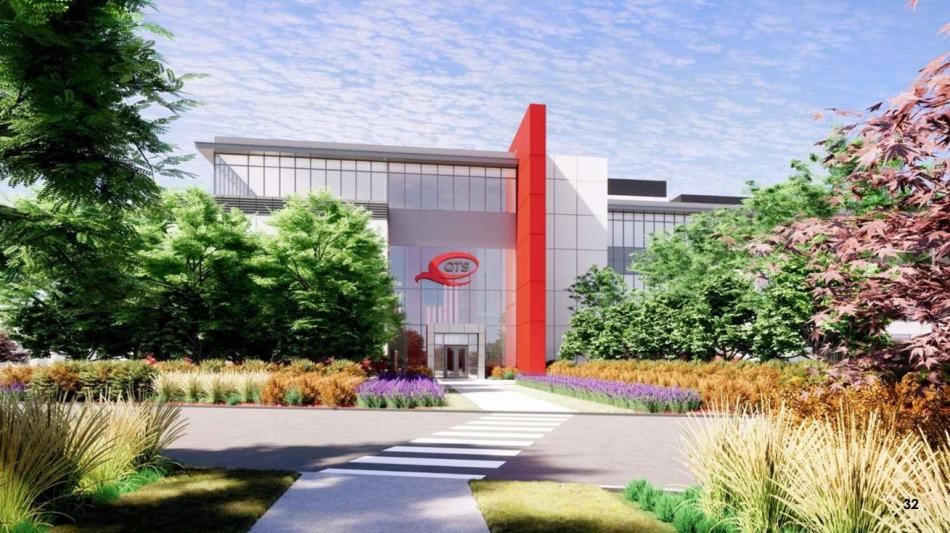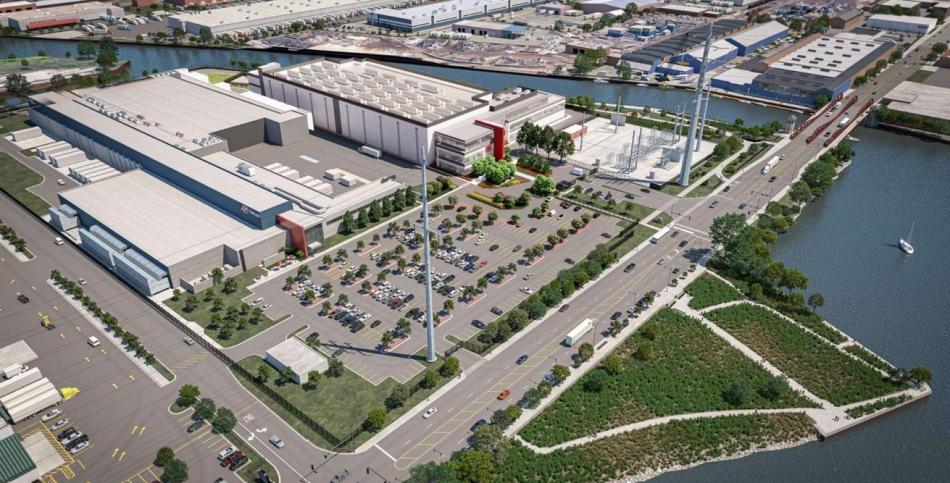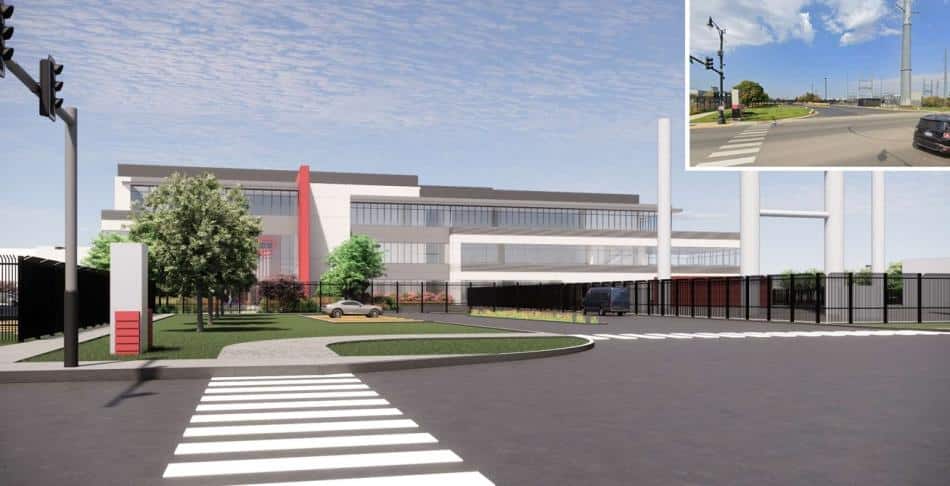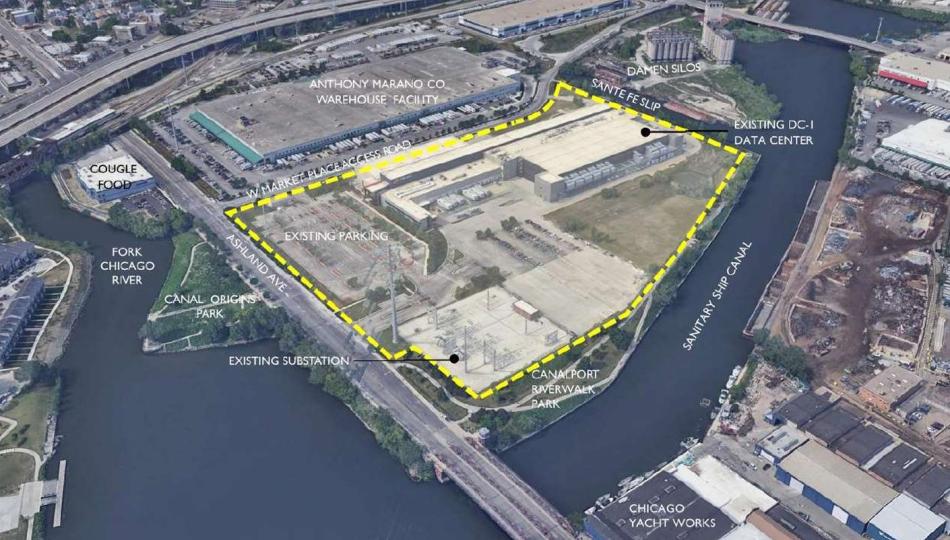Chicago’s Data Center Boom Continues At 2800 S. Ashland
As the digital economy continues to expand, Chicago has emerged as one of the top markets in the United States for data center development. With its central location, strong infrastructure, and access to abundant power, Greater Chicagoland is increasingly attractive for data center developers and tech companies looking to meet the surging demand for cloud storage, artificial intelligence (AI), and high-performance computing. The recent approval for a data center at 2800 S. Ashland Avenue signals the city’s growing importance in this space and highlights what it takes to support these complex, resource-intensive facilities.

800 S. Ashland: A New Chapter in Chicago’s Data Center Growth
The Chicago City Council’s recent approval of a $257 million data center at 2800 S. Ashland Avenue is a major milestone for the city’s burgeoning data center market. Proposed by Harrison Street Real Estate Capital, the 190,000-square-foot facility will occupy a 12-acre site in Chicago’s Lower West Side. Designed to meet the rising demand for data processing, cloud storage, and AI-driven technologies, this development represents a strategic use of underutilized industrial land.
Why 2800 S. Ashland Matters:
- Prime Location: Situated near key infrastructure hubs and fiber-optic networks, the site ensures low-latency connectivity—an essential feature for modern data centers.
- Access to Power: Chicago offers stable, reliable power access, which is crucial for data centers requiring immense energy to support operations.
- Economic Impact: The development is expected to create significant jobs during construction and ongoing operations, contributing to the city’s economy.
The 2800 S. Ashland project reflects Chicago’s ability to attract major investments in data infrastructure, aligning with the city’s goals of repurposing industrial land for modern technological needs.
The Growing Demand for Data Centers in Greater Chicagoland
The approval of 2800 S. Ashland highlights the broader high demand for data centers in the Chicago region. Over the past few years, Chicago has positioned itself as a top-tier market for data center growth, trailing only behind Northern Virginia and Dallas-Fort Worth. This surge in demand can be attributed to several factors:
- Central Location: Chicago’s geographic location in the Midwest makes it ideal for companies requiring a hub that can provide low-latency connections to both coasts.
- Strong Connectivity: The city’s extensive network of fiber-optic cables and proximity to internet exchanges makes it a prime location for data transfer and storage.
- Affordable Power: Chicago provides access to competitive energy rates compared to other regions, a critical factor for data centers that consume massive amounts of electricity.
- Tax Incentives: Illinois offers incentives for data center development, including sales tax exemptions on equipment purchases for facilities that meet investment and job creation thresholds.

Other Major Data Center Developments in the Region
Several high-profile data center projects in Greater Chicagoland further illustrate the region’s appeal:
- Digital Realty – 350 E. Cermak Road
As one of the most significant data center hubs in the country, 350 E. Cermak is often referred to as the “nerve center” of the internet. The 1.1 million-square-foot facility is home to key network providers and businesses relying on high-speed connectivity. - QTS Data Centers – Elk Grove Village
QTS recently expanded its footprint with a state-of-the-art campus in Elk Grove Village, a hotspot for suburban data center development. With over 600,000 square feet of capacity, this project highlights suburban Chicago’s ability to support large-scale infrastructure. - Microsoft – Northlake and Hoffman Estates
Microsoft has invested heavily in the region, with two massive data center campuses in Northlake and Hoffman Estates. These facilities support the company’s growing cloud services while leveraging the region’s affordable energy and connectivity. - Meta – DeKalb
Meta (formerly Facebook) is developing a $1 billion data center in DeKalb, Illinois, further evidence of the region’s appeal to the biggest names in tech. The facility is designed with sustainability in mind, utilizing renewable energy and innovative cooling systems.

What It Takes to Build a Data Center
While data centers are essential to the modern digital economy, they are complex projects requiring significant planning, investment, and infrastructure. Here’s what it takes to bring a project like 2800 S. Ashland to life:
1. Power and Cooling Infrastructure
Data centers are energy-intensive, requiring a constant and reliable power supply. Facilities like 2800 S. Ashland often require tens of megawatts of power to keep servers running. Cooling systems are equally critical, as data servers generate enormous heat. Advanced solutions like liquid cooling and sustainable energy use help reduce operational costs and environmental impact.
2. Robust Connectivity
The success of a data center depends on high-speed, low-latency internet connectivity. Developers choose locations close to existing fiber-optic networks, like those in downtown Chicago, to minimize delays in data transfer.
3. Real Estate and Zoning
Data centers require large, flat parcels of land, often repurposed industrial sites like 2800 S. Ashland. Developers must work with local governments to secure zoning approvals, ensuring the land use aligns with community goals.
4. Security
Data centers must meet the highest standards of physical and cybersecurity to protect sensitive data. Facilities include perimeter fencing, biometric access controls, and 24/7 monitoring to safeguard operations.
5. Sustainability Requirements
As demand for data centers grows, so does the need for sustainable development. Projects are increasingly incorporating renewable energy sources, energy-efficient designs, and water-saving cooling systems to reduce their environmental footprint.

Challenges to Overcome
While Chicago has emerged as a prime destination for data centers, developers face a few notable challenges:
- Power Availability: As demand for data centers grows, ensuring reliable access to affordable power remains a critical factor.
- High Construction Costs: Building data centers requires significant upfront investment, particularly when incorporating modern cooling and security systems.
- Community Concerns: Residents may raise concerns about noise, energy consumption, and land use, requiring developers to prioritize transparency and community engagement.
The Future of Data Centers in Greater Chicagoland
The approval of the 2800 S. Ashland project is a clear indicator that Chicago’s data center market is primed for continued growth. The region’s strategic location, tax incentives, and infrastructure make it a leading destination for tech companies and developers seeking to expand their digital operations.
Other regions in suburban Chicagoland, such as Elk Grove Village and DeKalb, continue to see substantial investments from major players like QTS, Microsoft, and Meta. As the demand for cloud computing, artificial intelligence, and data storage increases, these projects will play a pivotal role in supporting the digital economy.
Looking ahead, the future of Chicago’s data center market depends on balancing power accessibility, sustainability, and community integration. Projects like 2800 S. Ashland not only highlight the city’s role as a tech infrastructure hub but also reflect its ability to adapt and thrive in an evolving economic landscape.
Conclusion
The approval of the 2800 S. Ashland data center is a milestone for Chicago’s growing reputation as a leader in digital infrastructure. With increasing demand for data storage and connectivity, projects like this—alongside developments in Elk Grove Village, Northlake, and DeKalb—are shaping the region’s future as a critical hub for the global tech industry.
While challenges remain, from energy demands to construction costs, Chicago’s combination of location, incentives, and infrastructure makes it uniquely positioned to meet the needs of the digital economy. As data centers continue to play a central role in technological innovation, Greater Chicagoland is set to remain at the forefront of this rapidly growing sector.

